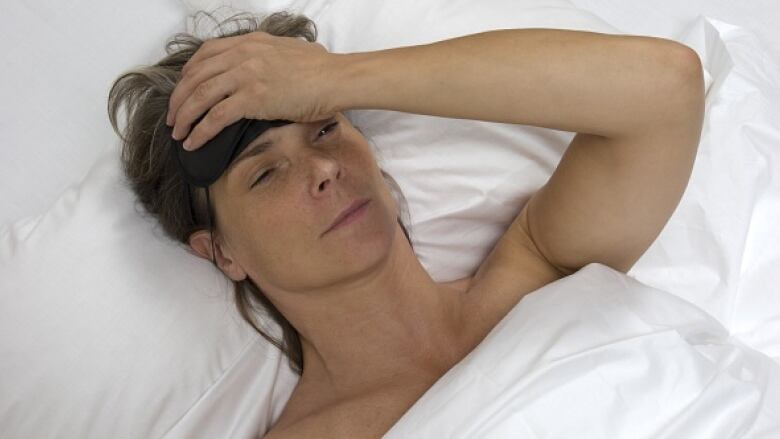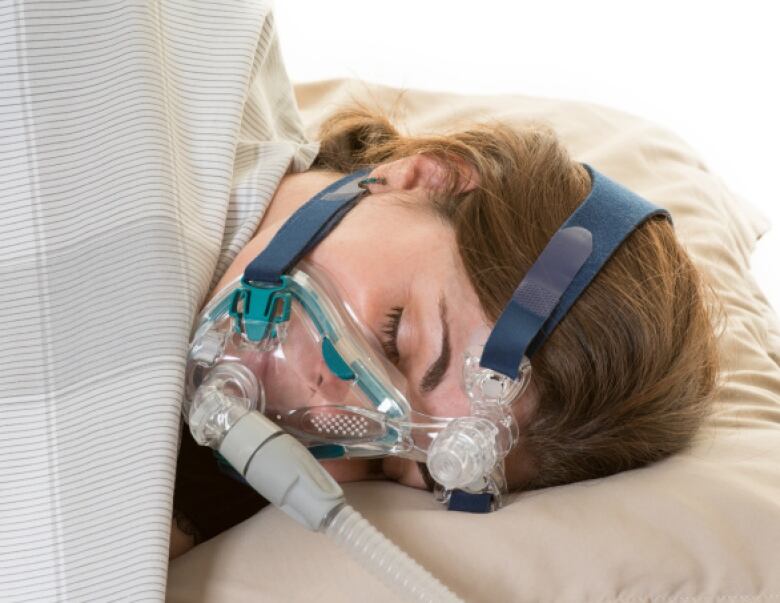Sleep disorders will affect 40% of Canadians, pose serious health risks
'Over time, you incur a sleep debt which you can never fully repay,' says doctor

Roughly 40 per cent of Canadians will experience a sleep disorder during their lifetime, which canlead to serious health risks over time, according to sleep research.
- Lack of sleep called 'global epidemic'
- Sleep study over 2 decades suggests teens getting less shuteye
Long working days, social and family responsibilities, irregularshift workand illness can lead to self-imposed sleep restriction, while an untreated or undiagnosed physiological condition may causea chronic disorder that disrupts the quantity or quality of sleep, saidDr. Frank Ryan, a consultant to theSleep Disorders Programat UBC Hospital.
Lack of sleep tied to serious health risks
Stimulants such as caffeine and energy drinks areat best a short-term solution to improve daily functioning in those suffering from sleep deprivation, said Ryan.
"The problem is over time, you incur a sleep debt which you can never fully repay.
"This is probably going to have long-term health consequences. That's the risk."
- Lack of sleep can lead to obesity, heart problems
- Troubled sleepers urged to get tested for sleep disorders
One of the more common disorders is sleep apnea, a condition in which an individual stops breathing during sleep, sometimes hundreds of times a night.

According to Ryan, roughly 15 per cent of men and five per cent of women suffer from sleep apnea. "The problem is that about 80 per centof people with sleep apnea remain undiagnosed becausewe don't have adequate facilities for investigating and managing these people, unfortunately," he said.
Sleep apnea is associated with serious health conditions that include high blood pressure, heart failure, cardiovascular disease, depression and type 2 diabetes, according to the Public Health Agency of Canada.
Additional consequences of sleep disorders include a weakened immune system,impaired vigilance during tasks that require precision and attention, such as driving, as well as an increased risk of accidents in the workplace, Ryan said.
How much sleep is enough?
The American Academy of Sleep Medicinerecommendsat least seven hours of sleeppernight in order to maintain optimal health.
To improve sleep patterns, experts recommend avoiding blue light emitted by electronic devices such as tablets and cell phones, whichstudies have showncaninterfere with sleep-promoting hormones.
To be a little bit flippant, if I could paraphrase Pierre ElliottTrudeau, I would say, 'There's no place for TVs andsmartphonesin the bedrooms of the nation,'" said Ryan.
"If you wake up in the morning feeling refreshed, and if you're able to get through the day without feeling drowsy even when doing boring tasks, then you're likely getting good quality sleep," Ryan said.
"If not, and you're pursuing good 'sleep hygiene', then you may well have a sleep disorder that you need to talk to your doctor about."
Experts from the UBC Hospital Sleep Disorders Program will share the latest in sleep care and research at a panel discussion emceed byCBCEarly Edition host Rick Cluff. The event takes place on Oct. 29 from7 to 8:30 p.m. at the VGH Jim Pattison Pavillion.
To hear the full interview with Dr. Frank Ryan, listen to the audio labelled: Some reprieve for the sleep deprived.












_(720p).jpg)


 OFFICIAL HD MUSIC VIDEO.jpg)
.jpg)



























































































